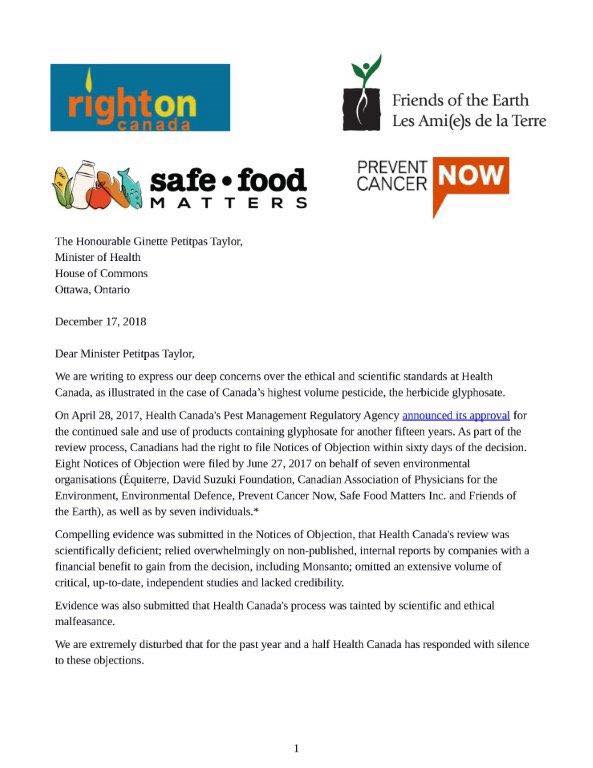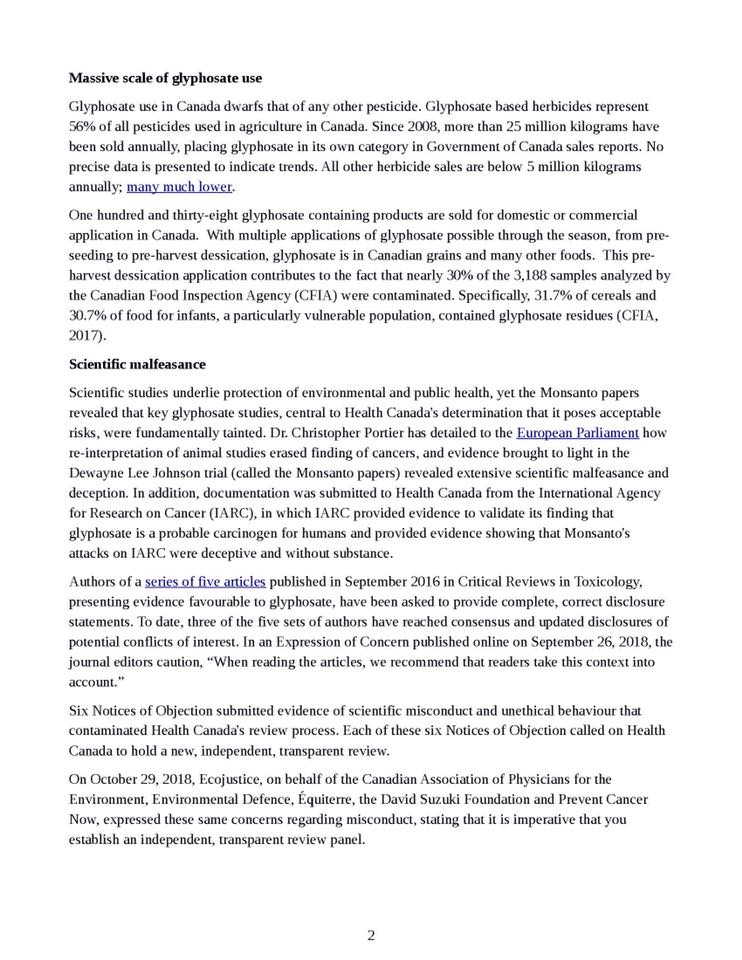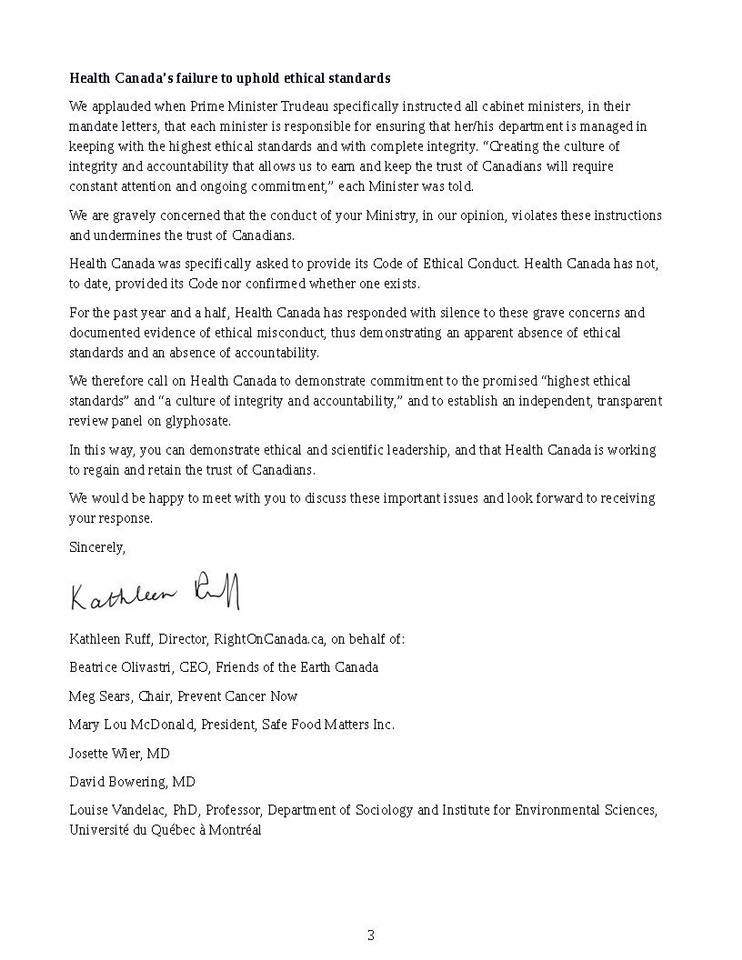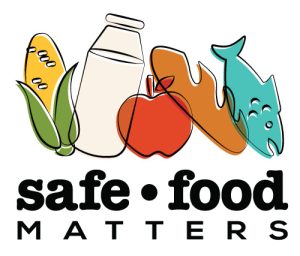To the PMRA – We Object!
On December 17, 2018, Safe Food Matters (along with Friends of the Earth Canada, Prevent Cancer Now and Right On Canada) objected to Health Canada’s re-registration of #glyphosate and called for immediate action by Canada’s pesticide regulator, #PMRA.
See our letter below.



Objecting to Glyphosate Desiccation
Glyphosate is being sprayed on crops to kill them for harvest, and the poison gets right into the still-growing seeds and beans: the food we eat. High and illegal levels in “healthy” foods like chickpeas result from this “desiccation” technique.
Health Canada just renewed the registration for glyphosate for another 15 years, and only tweaked the labels for spraying. It didn’t examine the effects of desiccation, and the tweaks won’t change desiccation exposure. Labels won’t work, aren’t followed, can’t be enforced, and Health Canada’s own law even admits it.
These points were made in a Notice of Objection (“NOO”) filed with Health …Read More
GLYPHOSATE IN OUR FOOD
There is glyphosate in our food, including infant cereal. Glyphosate is the most widely used herbicide in the world.
Tony Mitra, a retired engineer living in Vancouver, asked the CFIA for test data on glyphosate, and they provided it this year. The CFIA (Canadian Food Inspection Agency) has been testing the food in Canada for only about 2 years.
Mr. Mitra has found (so far):
Infant cereals are contaminated, except for Nature’s Path Organic and imports from Germany, Poland and Switzerland.
Wheat and its products are contaminated. Bran is extremely high on a relative basis. Organic is better in all wheat cases.
…Read More
The Pickle of Labelling GM Salmon and Foods, and How to Avoid It
Health Canada in May, 2016 approved a genetically modified animal (salmon) for human consumption. This food is the first of its kind in the world. A federal committee that looked at the issue has provided its report, which effectively includes a recommendation to not label GM foods.
The Standing Committee on Agriculture and Ari-Food stated it supports mandatory labelling “only when a risk to health has been established …”, and that “no risks to health have been identified for GM foods approved in Canada”. (7,8)
But of course no health risks can be identified, because GM ingredients can’t be traced. Why not? …Read More
A BEEF ON LABELING: IRRADIATED MEAT GETS A LABEL; BUT GM FOODS DO NOT
Health Canada is going to allow the beef industry to irradiate beef: to blast it with radiation. But it insists that such beef be clearly labeled so that “consumers wishing to purchase irradiated ground beef would easily be able to identify it on store shelves.” [i]
However there is no requirement to label genetically modified foods. It is hard to understand why there is a requirement to label one but not the other, because they are similar in many respects. Here are the similarities:
Both Are Processes at the Molecular Level
Irradiation is a process, according to the Technical Summary[ii], that is applied …Read More



